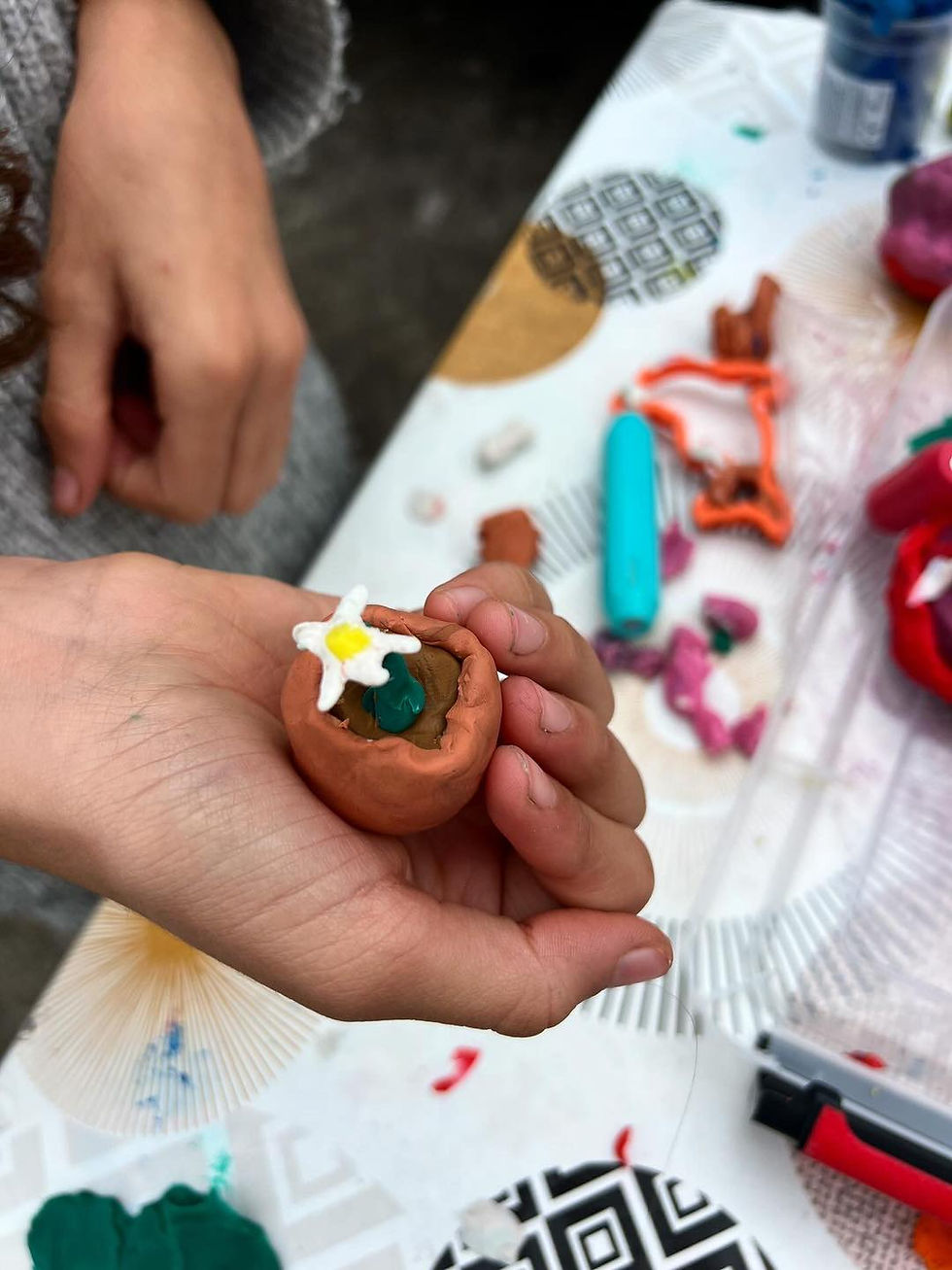The value of joint attention
- Art Refuge

- Sep 9, 2016
- 2 min read

CALAIS
On Monday this week a blockade took place around the Channel Tunnel and port in Calais, led by thousands of lorry drivers, shop keepers, residents and farmers, demanding the demolition of the camp, blaming it for rising insecurity.
THURSDAY Around 35 unaccompanied teenage boys joined us throughout the afternoon both inside the Doctors Without Borders/ Médecins Sans Frontières (MSF)container and on a table outside in the sun. One young man was offered to look through a box of postcards and choose one that sparked his curiosity, leading him to embark on a watercolour which he did with huge commitment. Others followed his lead.
The postcards seemed to lend themselves to the size of the space and their inherent transience seemed to allow for both intimacy and familiarity for these boys so used to navigating small spaces.
There were extended periods of joint attention, the boys seeking close proximity with us and with each other; several talked about hunger, lack of shoes, and fingerprints being taken forcefully in other countries in Europe.
The outside allowed for space around things, connection with the other services, as well as the freedom to come in and out of the art therapy space.
A couple of hours into the afternoon, heavy tear gas led several boys to join those already drawing in the container, invited in by us and each other to find refuge in the space as if coming in from bad weather or a storm at sea. There was a sense of the space as safe, in spite of the intrusion of the gas and the unlikely environment of a hot shipping container. Also an atmosphere of camaraderie.
FRIDAY Following another useful interagency meeting at the CAMI to flag up and jointly discuss individual young people of concern, we returned to Médecins du Monde France space to prepare for the day. This involved laying out around 200 plasticine animals, objects and people made in the psychosocial tent over the last few months so as to document, repair and re-present them back to those using the space.
Several men who join us regularly in the space recognised pieces they had made, new figures were added, and projects were embarked on to which we were invited to contribute.
As with yesterday, we felt acutely the harsh reality of distance, a sense of yearning, of the unbearableness of loss of family, of wanting familial attention with another person, of needing to tell aspects of the journey from home, of wanting to connect on an authentic level. Yesterday it was with us as mothers, today as fellow human beings – mothers, sisters, aunties.



Comments